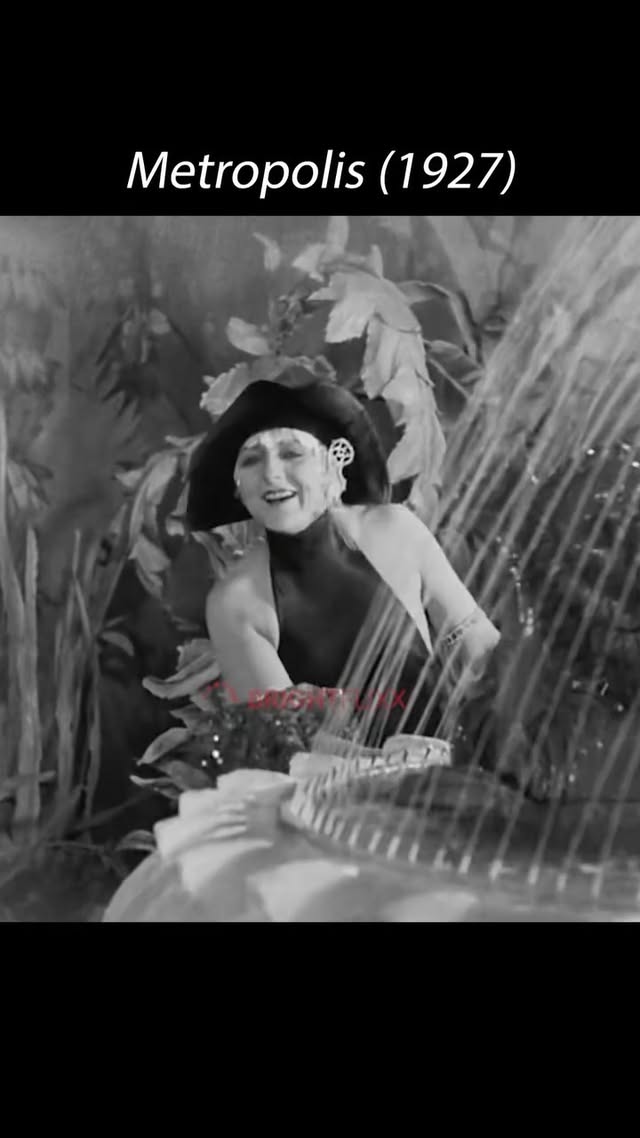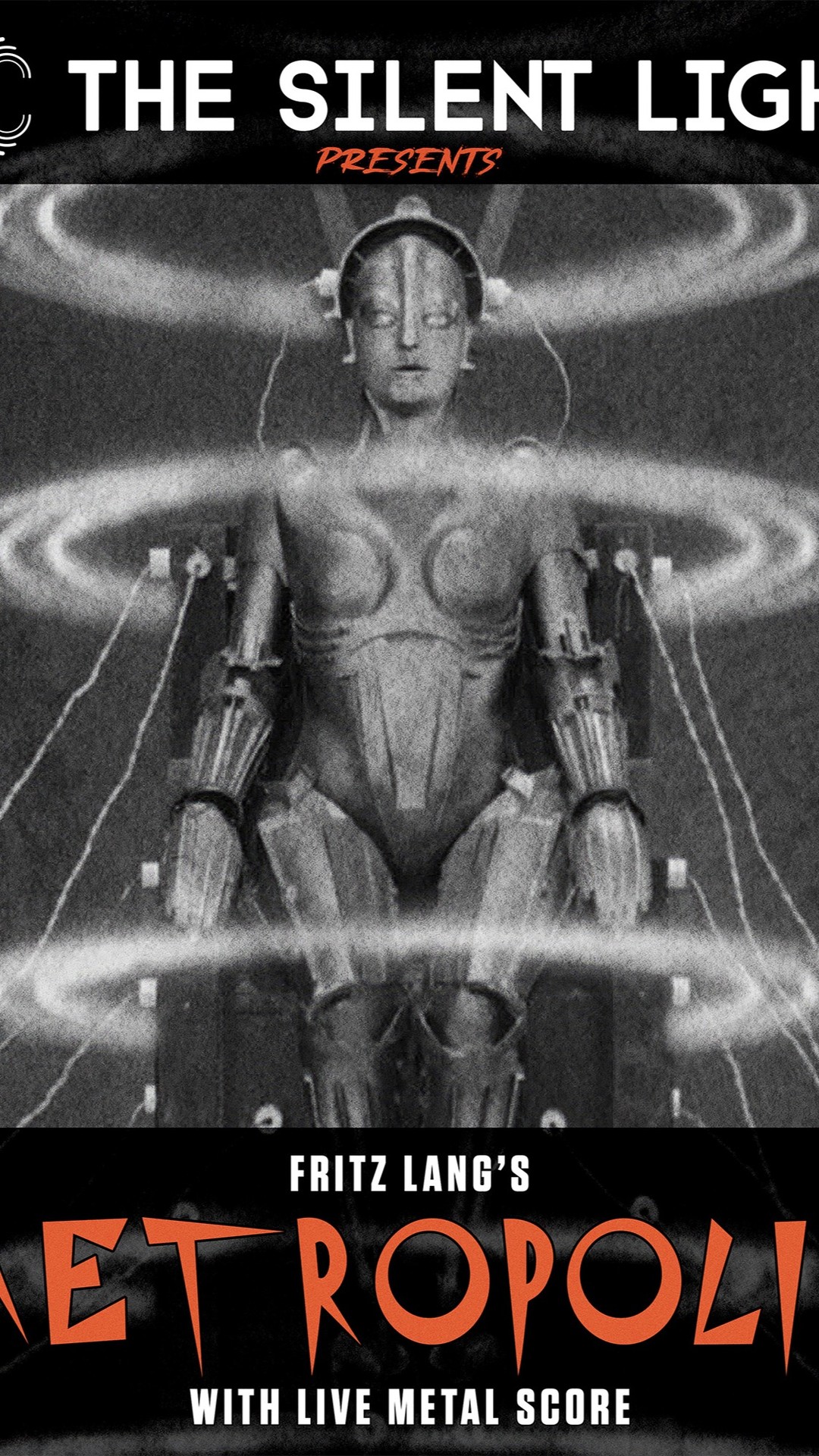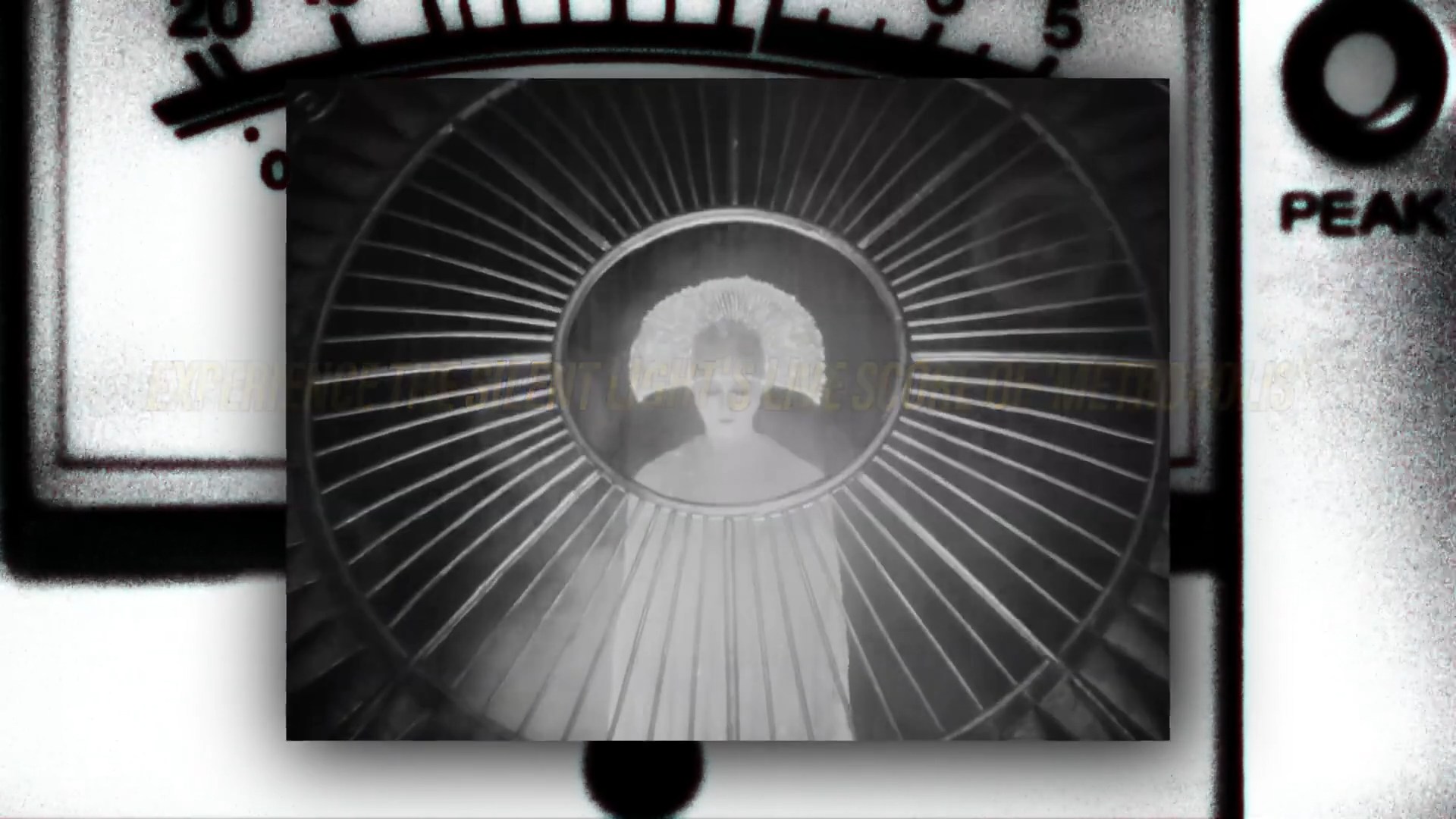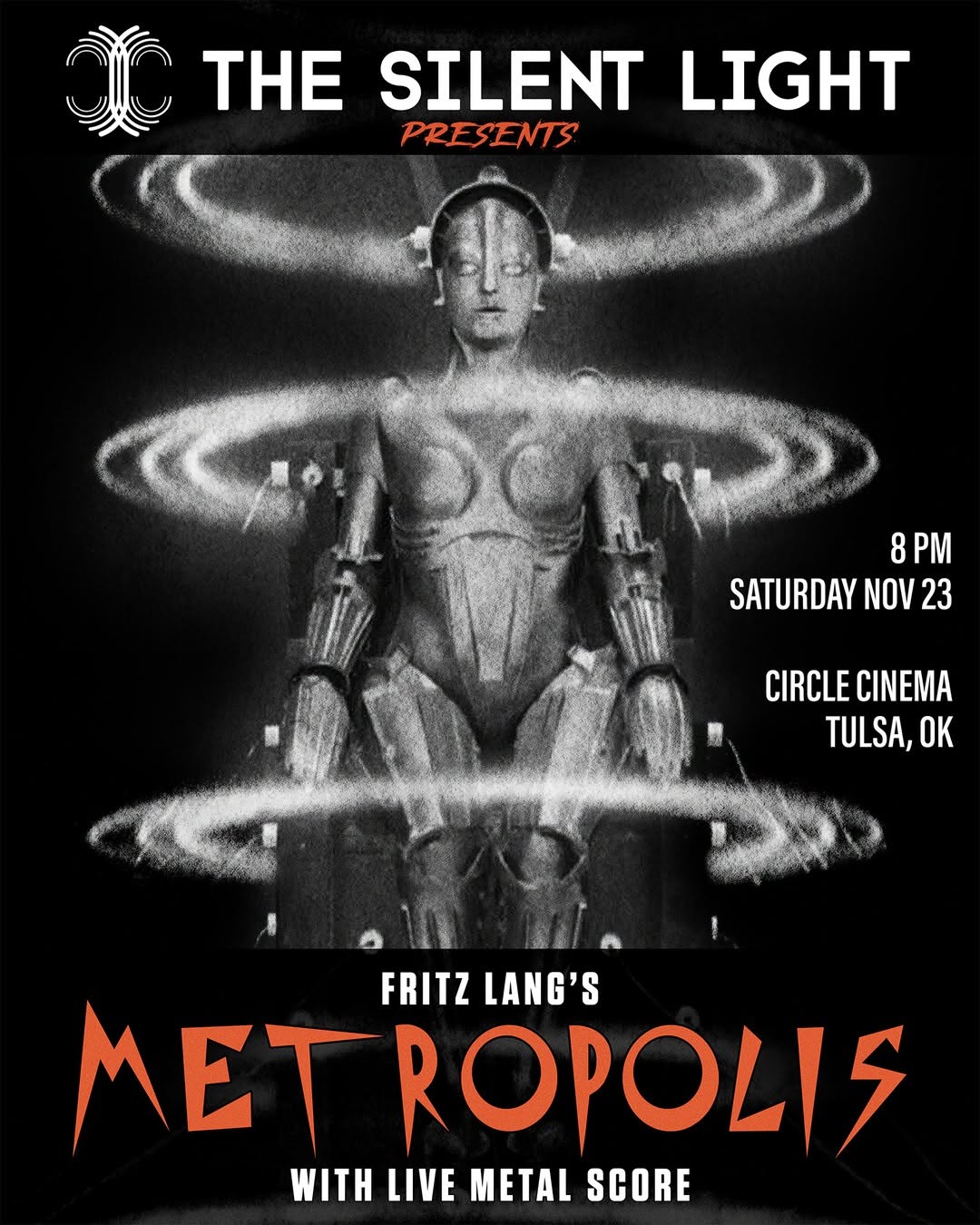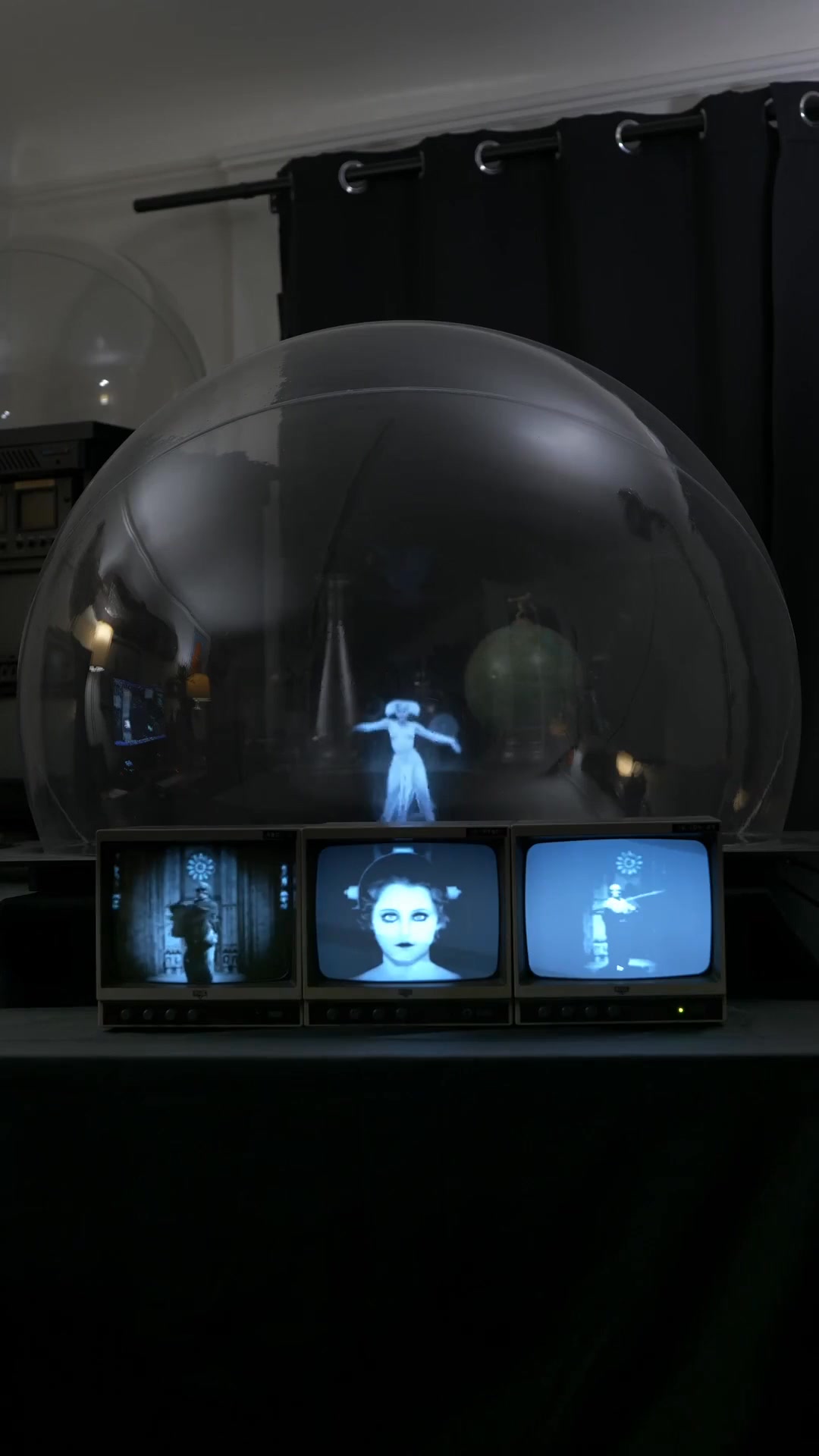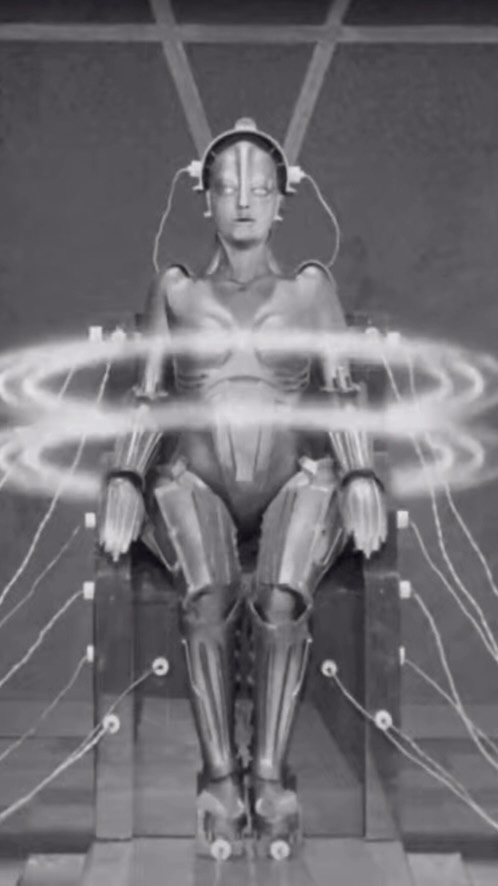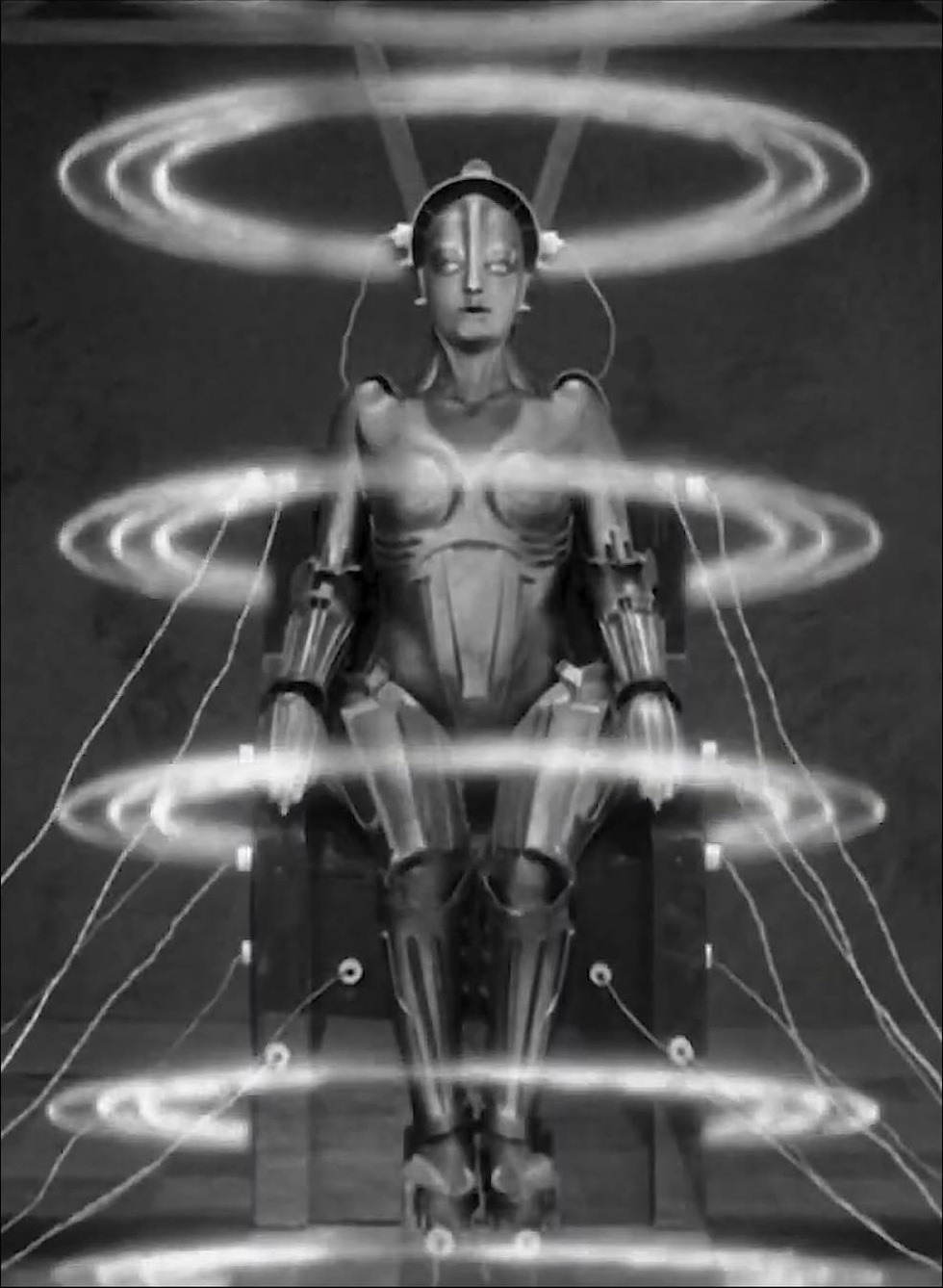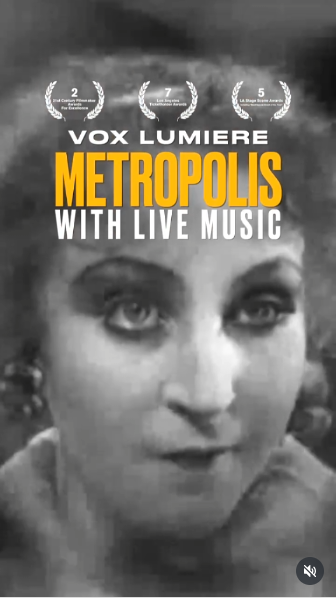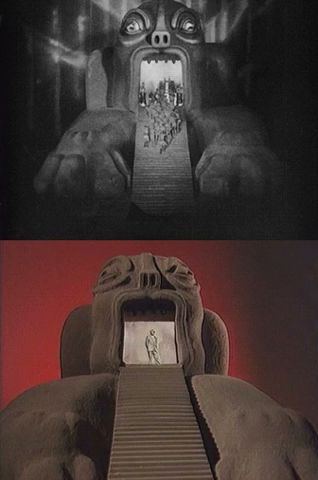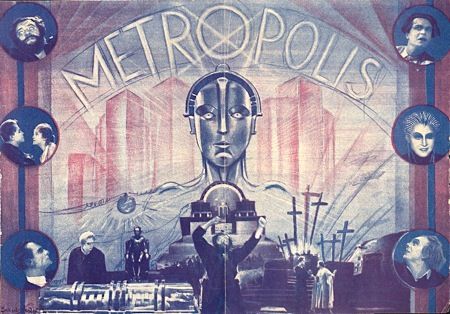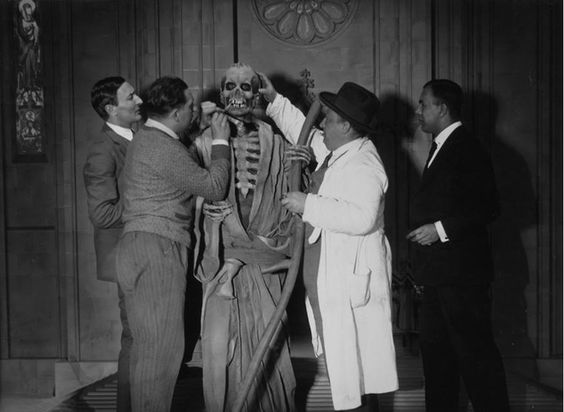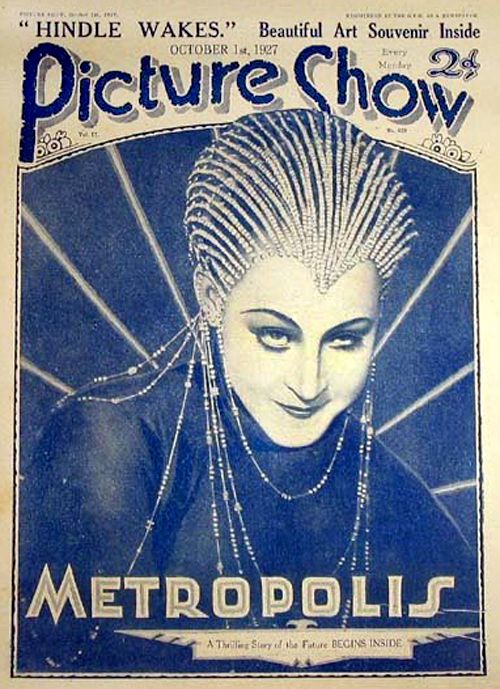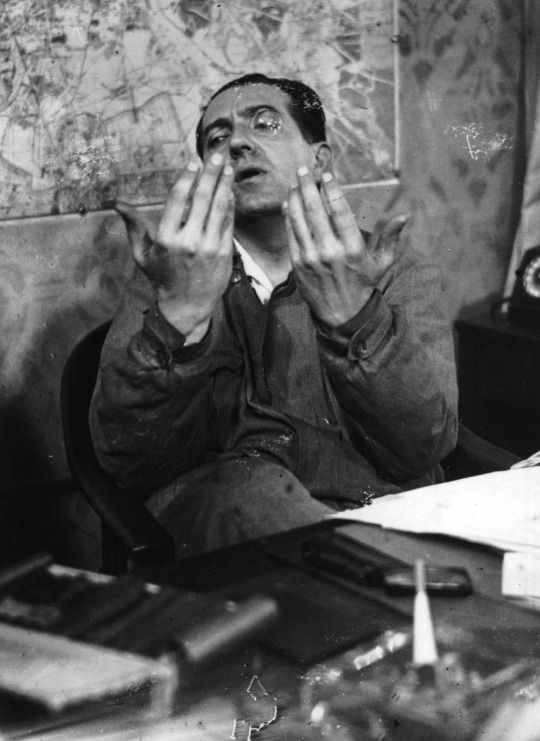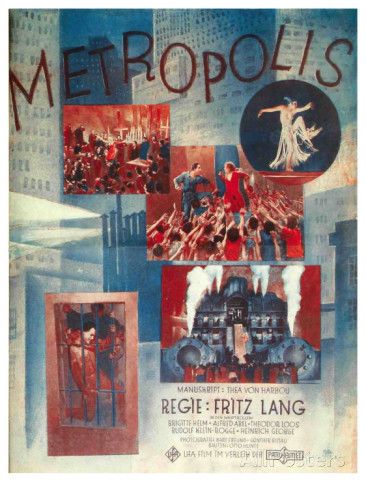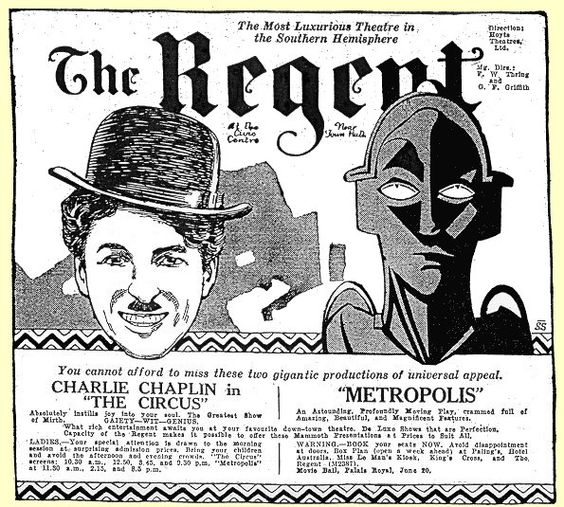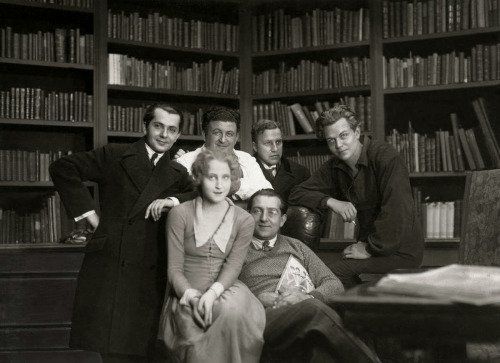| Return home | 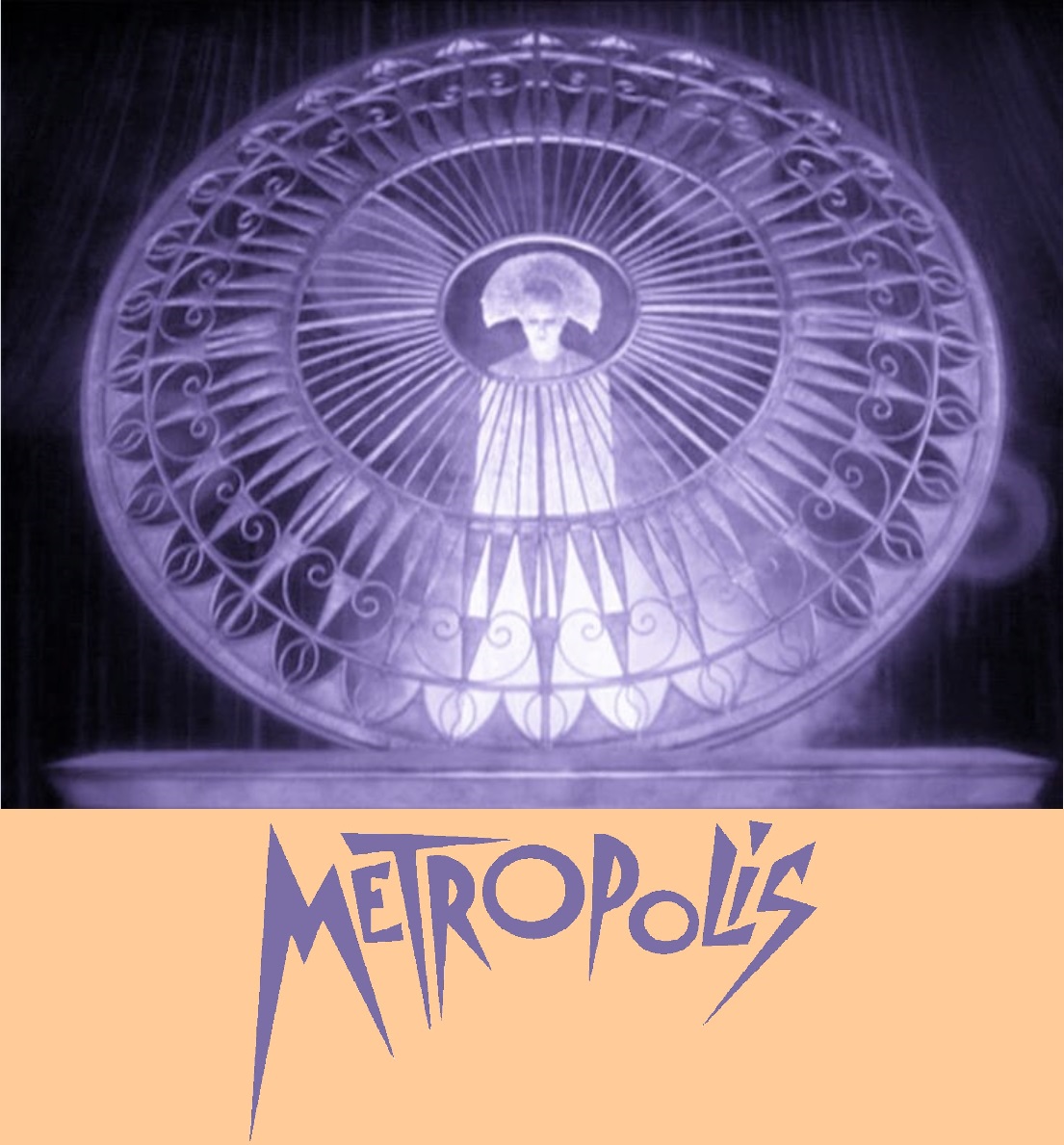 |
Return to previous page |
Restoration Redux

Click to play.
Reconstructed METROPOLIS at the Berlinale 2010 - DW-TV
Frank Strobel, https://youtu.be/RPgi461Jwg4
If YouTube ever disappears this video, download it.

Click to play.
Fritz Lang’s The Complete Metropolis - Theatrical Trailer
KinoInternational, https://youtu.be/9VxgQN2GfMY
If YouTube disappears this, download it.

Click to play.
Fritz Lang’s METROPOLIS 90th Anniversary Trailer
Eurekaentertainment, https://youtu.be/rXpKwH2oJkM
If YouTube disappears this, download it.
Archivists continue to work on this movie all the time,
and they were universally surprised and delighted to discover that a complete 35mm nitrate copy from 1927 survived in Argentina.
It had been censored a bit (but not by a censor, since Argentina did not have film censors back then,
according to Fernando Martín Peña (p. 68, fn. 42).
It is more likely, Fernando argues (and I agree), that a projectionist souvenired a few sexy bits.
The sole surviving print had been carelessly projected countless times over the next 32 years, by which time it was hammered,
with more dirt and scratches than image.
As recently as 1959, it was probably in good condition, though shrunken and warped.
The scratches must have been imposed later.
Beginnings and endings of reels were faded almost to nothing.
Two scenes were so battered that they were chopped out and tossed away.
In the 1970’s, this unique print was destroyed by burning because “NITRATE IS DANGEROUS!!!!!”
Yes, nitrate is superdangerous, but destroying it is not the proper solution.
Before its owners destroyed it, they
carelessly copied it to b&w 16mm.
Thanks to Fernando Martín Peña’s pamphlet (p. 58),
we learn that the owners sent it to Laboratorios Cinematográficos Tecnofilm, S.A., for preserving on 16mm.
Why Tecnofilm?
Because it was the cheapest lab of all, that’s why.
No cleaning. No protection. No wet gating. Printed through the Academy sound aperture, which is why the top and left went missing.
See? You just can’t win.
“Hey, it’s one-three-three , so it’s the same!!!!!”
insist all the braindead lab technicians who think they know everything
just because they can pronounce that cool term “aspect ratio” that they read about in dorky “film” journals
even though they don’t understand what it really means.
I can’t work in that business anymore.
I don’t even like to talk with most people in the movie business, and I certainly don’t want to meet any more of them.
Conversations all instantly break down as they boast their superior knowledge,
and I stare at them in disbelief, so dumbfounded that I don’t even know how to begin to explain anything to them.
They wouldn’t understand any explanations anyway, and they would have no patience to listen to any explanations.
You just can’t explain technical things or artistic things or nuanced things
to grownups with IQ’s of less than 7 who are all convinced that they’re geniuses.
There are brilliant people who work in film restoration, and I know a bunch of them,
and I like them, but all it takes is one momentary encounter with one dummy to drain all my energy for the next month.
So I stay away. Far away.
As far as I know, Tecnofilm is defunct. Good riddance.
Anyway, at least most of the long-missing Metropolis footage still existed, though in terribly compromised form.
After a great deal of digital surgery on the
Algosoft VIVA (brief demonstration),
the bulk of the material was
ported back into a previous restoration,
and so now, at long last, we know what the movie was about.
Better yet, Fritz Rasp is in it! Prominently! Hooray!
I can’t figure that guy out.
He has a face that, especially in profile, nobody could possibly trust.
He could look like a repulsive creep, but I suspect that he was a great clown who was perfect at portraying repulsive creeps.
Whatever the case, his very presence always makes me giggle.
Is the restored edition a better movie?
Yes, certainly.
I was surprised, though, to discover that it added a mere two major plot elements, not more.
The abridgments told essentially the same story, but terribly simplified.
The ending in the abridgments is extremely abrupt, and so I was fully expecting a more complete ending in the original edition.
Nope. Exactly as abrupt.
Anyway, Georgy’s temptation scene is one of the funniest things I’ve ever seen
and Fritz Rasp’s comical performance induces ecstasy and bliss.
When I saw this movie in ages past, I thought it was a drama.
Well, I now see that a lot of it was played for laughs.
I hesitated forever to watch this.
Why?
Because I was certain that the cropped 16mm footage would be enlarged to fill the whole screen.
That’s why.
Silly? Maybe.
Once I learned that the 16mm segments had black borders to indicate where image was missing,
then I was okay with it and purchased it on Blu-ray .
I’d love to see it someday on the big screen with a 65-piece orchestra performing the Huppertz score.
Maybe that will happen again some year before I croak.
Someone who calls himself Odo wrote “Metropolis,”
in Movie-Censorship.com, 17 May 2011.
He compared the 2001 restoration with the 2010 restoration and caught errors in both.
Definitely worth a read.
|
People seem to misunderstand Martin Koerber’s statement that the Argentine print of Metropolis
was the worst print of any film he had ever seen.
Of course, you and I and everybody else have seen films that, on screen, look even worse.
I have been a projectionist, and some prints had more splicing tape than film, with every sprocket hole split and ripped into the next,
and with emulsion that seemed to have been run through sandpaper multiple times.
That’s not what Martin was talking about.
He was talking about a fresh copy of a battered print.
To make a copy, it is necessary to clean the original, and if necessary to use a
wet gate, to adjust contrast, density, to perform color correction.
Always.
Not for this one, though.
Nobody could be bothered.
The damaged 35mm was loaded on one end, 16mm raw stock was loaded on the other, and the operator just pressed the GO button.
No cleaning. No wet gating. No adjustments. No nuthin.
Every imperfection in the original, every bit of damage, now became part of a new original — and was even worse than before.
That’s what Martin was talking about.
Anyway, I am convinced that more of Metropolis will be found.
Inevitable.
My worry is that now that this 2010 restoration is on the market, people will not be excited by more finds,
but will ignore them since “it’s been restored already!”
Every frame that’s found in the future, even if it duplicates what is already in the archives,
needs to go to the archives. Period.
More and better material will be found, I guarantee.
Don’t ignore it when you find it.
There is already a rumor posted on IMDb and other places:
“Additionally,
in October 2008 it was announced that another (hopefully) early copy in the obsolete 9.5 mm format
had been held in the University of Chile’s film library,
intentionally mislabeled to avoid destruction during 1973’s military coup.
It is as yet unknown if this holds any further viewable footage.”
My guess is that this 9.5mm copy is identical to
the five-reel Pathéscope condensation formerly on YouTube,
which does indeed have a few moments missing from the latest restoration.
|
Oh. I just discovered that when the Metropolis restoration was issued in Germany,
Warner Bros. contracted the release.
Did you know that? I would never have even guessed such a thing.
Goes to show how naïve I can be.
Alexander Mercouris has an intelligent analysis of Metropolis, which he sees as basically fascist.
I used to sort of agree with that.
Now I do not agree at all.
Yet there are a few troubling oddities; I mean, hey,
the movie castigates dissenters and celebrates newfound universal peace in the rapprochement of a dictator and a snitch.
(Assistant director Slatan Dudow,
a Marxist, walked off the production in protest of the message of
class collaboration rather than class struggle.)
The slaves, having burned the witch at the stake, have renounced their desires for revolution or even for reform.
They are pacified when the dictator’s son rescues their children so that they, too, can grow up to become mindless slaves.
We can presume that the slaves now return their dreary existence, at long last perfectly satisfied with their lot in life.
Not exactly progressive, is it?
Apart from the obvious ingredients, Mercouris noticed many, many dog whistles to which I was entirely deaf.
You can read his views at
“Metropolis — A Film Review and Analysis of the Restored Classic,”
Mercouris, 11 April 2011.
Does that make me dislike the movie?
No. Not at all.
The story is not fascist.
As Ann J. Drummmond definitively demonstrates in her
master’s thesis,
Metropolis was vociferously centrist.
Society at the time was at a boiling point, and Thea Von Harbou and Fritz Lang
created this story as de-escalation strategy.
Sadly, movies that rile people up and dumb them down are far more powerful than movies that induce thoughtfulness.
Metropolis entirely failed to de-escalate the tensions, and Germany soon afterwards became a killing machine.
Anyway, the movie is so ridiculously funny and so inanely silly that any message it tries to get across is rather defeated.
If you take the story seriously, you’re missing the point.
I suspect that Fritz Lang took it very seriously indeed,
which might be part of the reason why he abjured the film not too long afterwards.
What were Thea and Fritz’s political views?
Heck if I know.
Whatever they were, they were not well-thought-out .
Was Fritz a nationalist?
Yes, in the sense that he was steeped in and enamoured of Teutonic mythology and folklore.
No, in that he was more of an internationalist, working for the ideal that film could communicate
to all cultures of the world and bring us all together, convincing us to forego our ancient hostilities.
As for being a racist, he was absolutely not, not at all.
He was fascinated by other cultures, oriental, indigenous, and so forth.
I suppose that Fritz and Thea had not fully articulated their ideas,
and, deep down, unconsciously, they detected the ridiculousness of 1920’s Germany,
and that subconscious insight blossomed forth in one of the most preposterous motion pictures ever created.
Maybe that’s why I love this movie so much.
Truly, though, I really don’t have enough insight to understand why I love this movie.
I just love it, and that’s that.
Here is a viewpoint the reverse of Alexander Mercouris’s interpretation:
Michael Organ, “Berlin Babylon:
Apocalyptic Visions in Fritz Lang’s Metropolis.”
I just received the late Thomas Elsaesser’s BFI guide to Metropolis and he makes a telling observation.
I am surprised I never noticed this before, but, I confess, I never noticed it before.
He argues that the various interpretations are all off the mark.
Fascists condemned it as Communist.
Communists condemned it as fascist.
People of various ideologies either championed it or lashed out against it for whatever Rorschach readings they projected upon it.
The arguments continued for decades and continue still.
Elsaesser argues that the story should be seen as a fairy tale, and he goes into quite some detail to make his case.
If one takes it as a fairy tale, a lot of the other interpretations fall away.
The odd thing about being a bit in love with this silly movie
is that I was often too embarrassed to watch it, even in the privacy of my own abode.
I would want to see it, but I just couldn’t bring myself to plop in the disc.
Too painful.
Face it, Metropolis, on its surface, is about as intellectually stimulating as Romper Room.
I’m finally over that, though.
Maybe because of Huppertz’s score?
Maybe because of the glorious Fritz Rasp?
Maybe because I can now see beyond the lame nonsense and contemplate some of the context?
I don’t know. I really don’t.
Well, maybe I do, but just a little.
Now that I’ve been watching it and studying it more and more,
I’m catching the subtleties and nuances to which I was blind before.
In the chopped-down version we all saw in decades past,
Metropolis is not merely a simplistic fairy tale, but a dark one, very dark.
Its arguments are incoherent and contradictory,
its parable of Babel is a drastic distortion of the original and is extremely puerile,
but, putting that aside, the movie has a nightmare quality that builds and builds and builds,
and perhaps that is what resonates.
Many of us, I suppose, have had similar nightmares of a completely irrational and alienating society
ruled by completely irrational people who dominate unpredictably violent irrational subjects.
It is significant that so many scenes take place in darkened spaces, in a gloomy house,
in a catacomb, and at night.
The similarities to fairy tales and nightmares,
the uncomfortable depiction of rulers and ruled as unpredictably murderous maniacs
who knowingly make the worst possible decisions even (especially?) at their own peril, is quite evocative.
Many commentators from 1927 through to the present day express disappointment or even disgust at the overacting.
The overacting was necessary.
Realistic acting would have clashed with the preposterous nature of the narrative and would have rendered the result unwatchable.
Exaggerated, unrealistic acting, on the other hand, fits right in and allows us to suspend our disbelief.
If you don’t try to make sense out of the movie,
but just let the unthinking dreamlike nature of the story and the visuals wash over you and get under your skin,
you will be in the right frame of mind to be receptive to this film,
which is, I should say, unlike anything else I know of.
Now, in the expanded edition, which is tantalizingly close to complete, it is even better.
At long last, we know what Channing Pollock chopped out.
He chopped out the important scenes of heartbreak, jealousy, treachery, temptation,
intimidation, bullying, fear, intrigue, combined with marvelously comical bits of surrealism.
Now that most of that has been put back in, the movie is infinitely more satisfying.
What Channing chopped out were the scenes that held the story together and enriched the experience exponentially.
He chopped out the scenes that gave the movie its flavor and texture.
I know nothing about Channing, but I assume, based only upon his butchery of Metropolis,
that he disliked comedy and surrealism and flavor and texture and atmosphere,
and that he did not appreciate subtexts, and probably didn’t even understand them.
He preferred to concentrate only on plot, reduced to its most basic throughline, devoid of complexity or ambiguity of any sort.
It seems to me that when Channing studied the movie, all he latched onto was
“capital — labor — mad scientist — robot,”
and that he entirely misunderstood even those elements.
Why Paramount chose Channing, of all people, to abridge the movie is beyond me.
There was no reason to shorten the film, no reason at all,
and there was no reason to eliminate the most attractive elements,
unless, as I surmised above, the goal was simply to render the film less effective and therefore less competitive,
so that it could never reveal itself as superior to run-of-the-mill Hollywood product.
As mentioned above, Hollywood studios were intentionally crippling German competition.
Ah! Insight. I still don’t have insight, but here is a fascinating review,
easily the best review Metropolis I have read:
Chris Scott Edwards,
“Metropolis (Newly Restored) (1927),”
Silent Volume, Saturday, 13 November 2010.
I have a few insignificant quibbles with it — very few and very insignificant.
(For instance, Maria intones “These are your brothers” not to Freder, but to the children.
And she is most definitely wearing barely sufficient clothes when strapped to the table in the lab.)
Chris captures the mood and the feel, as well as some of the unexamined, unstated assumptions that underlie the story.
He captures the key to the mystery: What this overblown city tells us about human nature.
And that’s it, maybe that’s what hooked me on this movie. Maybe.
I really don’t know.
My ideal Blu-ray or 4K edition would consist not only of the restoration
(tinted this time! and with the extra shots from the Pathéscope 9.5mm edition),
but also of the standard 1936 German/MoMA edition with the Nordwestdeutscher track,
the Associated British/Janus edition with the Queen’s Hall Light Orchestra track,
the reconstructed US Paramount edition by Channing Pollock with and without the trims reintegrated,
the Australian edition with supplements showing the differences with the New Zealand edition,
the Eckart Jahnke edition with the Fitzwater/Davies accompaniment,
the full Argentine 16mm print without digital clean-up ,
and reconstructions, side by side, of the German, US, and export editions.
Any other variations should be included in supplements.
Options for seeing the full width and height, out to the original edge codes and frame lines, would be even better yet.
I would pay good money for that.
Then I would be satisfied.
That is how I would best enjoy this movie.
Just discovered that the out-of-print
Eureka “Masters of Cinema” box set included a splendid documentary called
Metropolis Refound,
and so, thanks to the wonders of eBay, I have a copy on order.
One thing leads to another.
There’s a new book by
Fernando Martín Peña.
The price is 2,290.00 Argentine pesos, which is about US$12.37, not bad at all.
I must get it somehow, even though I’m blocked because I do not have an Argentine D.N.I.
After all, why would I? Fiddlesticks!
Ah. A colleague shipped it to me, and I see that it is not a book.
It is a pamphlet.
It has some fascinating material.
I started reading it, which is a bit of a challenge since I don’t speak Spanish.
Kevin Brownlow wrote a heart-rending introduction.
Fernando bases his background story on Klaus Kreimeier’s The Ufa Story,
which in turn based its background story on press releases,
and no press release should ever be believed.
In looking ahead, I see that the next two chapters are about The Adventures of Metropolis
in the Land of the Argentine, and that is what I am looking forward to.
Each page gets a bit easier for me, but still, it’s a lengthy struggle.
The pamphlet also has some more charcoal display ads by Lionel S. Reiss!
That is how we learn that some of the ads submitted to the NYC newspapers in March/April 1927
were not the entire pieces, but just details,
which would explain why the artist’s name was sometimes cropped out.
About that Metropolis Refound documentary,
something about it puzzles me, though it does not surprise me.
We have some comments from staff at the Buenos Aires Film Museum.
Paula Félix-Didier : “The film was classified, indexed, catalogued, with a label that said Metropolis.”
Felipe Costa: “I am not a movie buff, so I could never have known whether our print was longer or shorter,
contained more or less scenes or sequences.
Once we finished the collection index,
we put it inside a locker and it remained there.”
Okay, hang on.
A 16mm print of Metropolis would normally be about 3,385' long.
The 16mm dupe negative that the Buenos Aires Film Museum received was about 5,497' long.
Right away, all the staff’s alarm bells should have been clanging.
Why was it that much longer?
That very day they should have scheduled an investigation.
Instead, they just lackadaisically plopped it onto a shelf in the vault and washed their hands of it.
I am glad that Felipe Costa is not a movie buff, but even so,
he should have simply checked the length against the standard length as published all over the place.
Yet again, this is why I cannot work in the movies anymore.
The cynical absence of curiosity, of even basic record-keeping, drives me totally mad.
My nerves cannot handle such situations.
Despite all that, I would really love to chat with Paula Félix-Didier
and with Fernando Martín Peña.
They are saviors and I admire them tremendously.
I have no idea how to reach them.
We should not close without mentioning the opinion expressed by several people
that the standard release editions —
by which I presume they mean the Kino VHS edition from 1989 (aka Nordwestdeutscher 1965 edition)
or the MoMA edition or perhaps the earlier 1963 Nordwestdeutscher Filmverleih edition —
were
perfectly fine, and that the 2010 restoration, which brought back nearly an hour of footage
that had long been suppressed, was a terrible
disappointment and even a total waste of effort.
Yes, there are the contrarians among them, contrarians who are contrary for no reason other than the sheer joy of being contrary
and who get their greatest kicks from ruffling people’s feathers,
but there are also
perfectly sincere movie buffs
who simply think that the abridgments play better and make more sense than the fuller and more authentic edition.
That’s to be expected.
As for me, I am of two minds on this matter, or, rather, one and a half minds.
The fuller version is, in my opinion, infinitely superior to what I had seen before;
it makes far more sense and is far more satisfying than the abridgments;
though longer, it feels shorter.
On the other hand,
I don’t want the abridgments to be forgotten,
and I don’t want them to go out of print or to be pulled from release.
Personally, I am quite fond of the BBC2 edition as well as of the prior Janus edition,
and I long to get good copies of both.
The abridgments are all a part of the historical record and they should all be preserved and made available.
They should all be represented in future Blu-ray and 4K editions.
I doubt any reasonable person would disagree.
For your amusement, here are some items on the Internet.
We can start with a printed document,
Metropolis: A Study Guide.
Interesting, I guess, but a lot of it is wrong.
Here’s a sweet little
musing that I find quite touching.
Some of the videos below are modern experiments inspired by Metropolis.
Some are background information on filming techniques, on unit photos, on special effects, and so forth.
Others are intros and outros and editorials and reviews and analyses, and some of them are okay, as far as they go,
though they all insist that the film is a work of futuristic science fiction, which I think is a ridiculous interpretation.
Some of the commentaries are hopelessly inaccurate.
A few are works of delusional lunacy.
I found some others, too, but they are so bloody awful that I could not in good conscience even make a reference to them.
There is little with which I agree in the reviews and analyses.
I am fully, painfully, agonizingly aware that I am not the brightest bulb in the ceiling,
and I am frequently intimidated by those who are well-read , knowledgeable about the news and about the sciences
and about the world around them,
who obviously know a thousand times more than I do, and to whom it all comes so enviably easily.
Then, as if to compensate, the opposite happens, and I discover commentaries such as the ones below.
Exasperating.
Metropolis, at its surface level, is not difficult, it is not complicated, it is not demanding;
it is, rather, laughably simplistic and often inconsistent and incoherent.
It is at about grade-school level, comic-book level.
It’s extremely satisfying and entertaining, yes, certainly, but the basic story ain’t deep.
As Michael Organ said to me, Metropolis has the usual plot: Boy gets girl, boy loses girl, boy gets girl again.
I had to chuckle in agreement.
Yet even such a juvenile story as this is too difficult and obscure and challenging even for university professors.
What gives?
Maybe I should just quit watching movies, since movies seem to attract primarily dummies.
The smartest people I know don’t bother with movies. I think I am beginning to understand why.









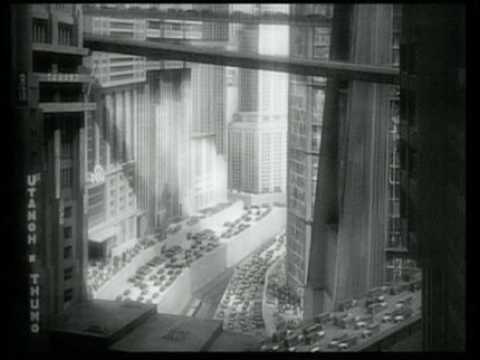




















































































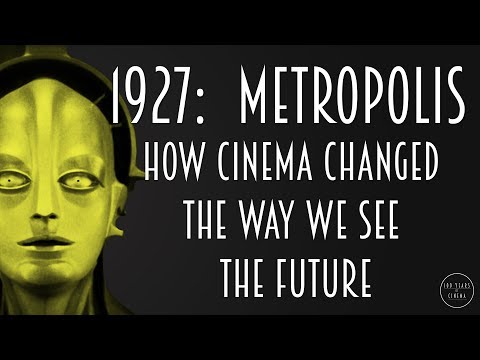





















































.jpg)
















.jpg)


































































































.jpg)



.jpg)












































__metropolis.jpg)







